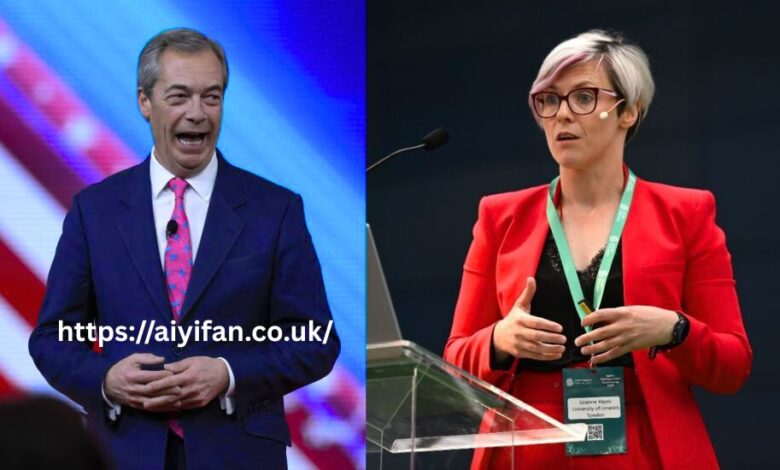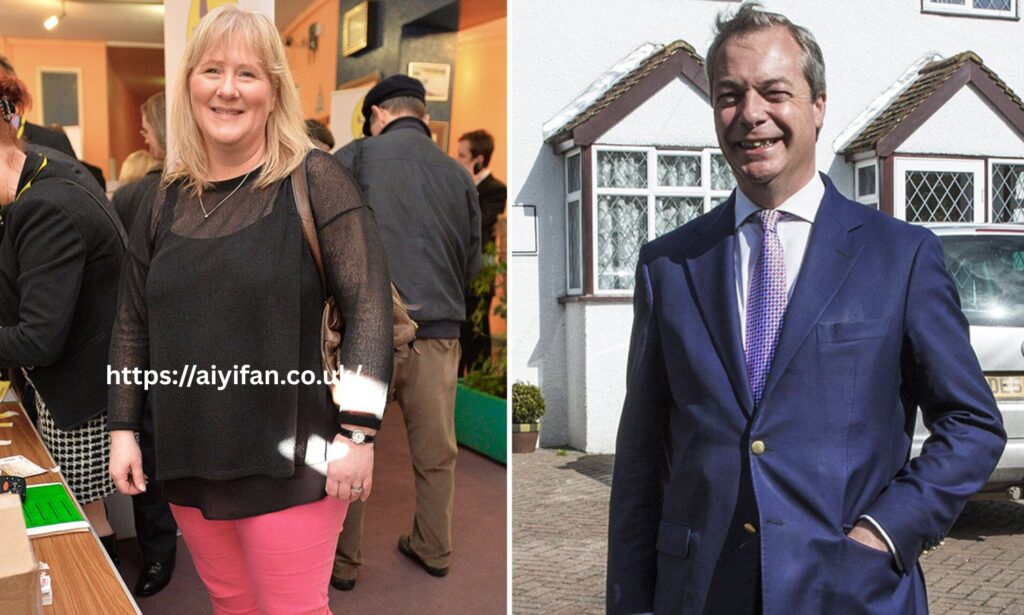Gráinne Hayes The Quiet Life of Nigel Farage’s First Wife

Gráinne Hayes may not be a household name, but her connection to one of Britain’s most controversial political figures, Nigel Farage, places her firmly in the spotlight of historical curiosity. While Farage has spent decades in the political limelight, particularly during his leadership of the UK Independence Party (UKIP) and his role in Brexit, Gráinne Hayes has chosen a markedly quieter path. This article explores the life of Gráinne Hayes, her marriage to Nigel Farage, and her life beyond the public gaze.
Quick Bio
| Name | Gráinne Hayes |
|---|---|
| Nationality | Irish |
| Profession | Nurse |
| Known For | First wife of Nigel Farage |
| Marital Status | Divorced |
| Ex-Husband | Nigel Farage |
| Marriage Year | 1988 |
| Divorce Year | Late 1990s |
| Children | Reportedly two |
| Current Status | Private life, away from public eye |
| Residence | Believed to be in the UK or Ireland |
| Media Presence | Minimal to none |
| Public Image | Quiet, reserved, dignified |
Who is Gráinne Hayes?
Gráinne Hayes is an Irish nurse by profession, known predominantly for being the first wife of British politician Nigel Farage. Born and raised in Ireland, Hayes has largely maintained a low profile throughout her life, avoiding media attention despite her high-profile connection.
Meeting Nigel Farage
Gráinne met Nigel Farage during the 1980s when both were in their early twenties. At the time, Farage was establishing himself in the commodities trading world. The couple married in 1988, long before Farage became a political figure of national—and later, international—significance.
Their early years together were said to be relatively modest, far from the intensity and scrutiny that would later follow Farage. According to various accounts, Hayes was supportive of her husband during his formative years, even as his political ambitions began to take shape.
A Marriage Marked by Political Change
The couple’s marriage coincided with Farage’s increasing involvement in British politics, particularly his association with the UK Independence Party (UKIP), which he co-founded in 1993. As Farage’s public profile grew, so too did the pressures on his personal life.
By the mid-1990s, Farage was fully immersed in political life, advocating for Britain’s exit from the European Union. His long hours, constant media attention, and unwavering political commitments reportedly created strains within the marriage.
The couple divorced in the late 1990s. Specific details around the separation remain largely private, in keeping with Gráinne Hayes’s preference for a life away from the media.
Life After Nigel Farage
Following her divorce from Farage, Gráinne Hayes returned to her career in nursing and stepped away from public life. Unlike many who have had close ties with political figures, Hayes never gave tell-all interviews or sought to capitalize on her former husband’s fame.
Her discretion has earned her a degree of respect in media circles and among political observers. She is seen as a private individual who values her independence and privacy over publicity and personal gain.

Why Gráinne Hayes Still Draws Interest
Despite her quiet lifestyle, Gráinne Hayes continues to draw interest from the public for several reasons:
- Historical Connection: As the first wife of Nigel Farage, she is connected to one of the most influential political shifts in recent British history—Brexit.
- Public Curiosity: People remain intrigued by the personal lives of public figures, especially those who had significant roles in shaping their early paths.
- Contrast with Farage’s Later Relationships: After his divorce from Hayes, Farage remarried Kirsten Mehr, a German national, further drawing interest in the contrast between the two marriages.
Conclusion
Gráinne Hayes’s story is a compelling reminder that not all lives touched by fame choose to bask in its glow. While Nigel Farage became one of the most vocal and visible advocates for Brexit, Hayes opted for a quieter, more private existence—away from cameras, interviews, and political drama.
Her legacy, while understated, is woven into the broader narrative of a political figure who changed the course of British history. In an age dominated by attention and publicity, Gráinne Hayes remains a figure of quiet strength and dignified privacy.





